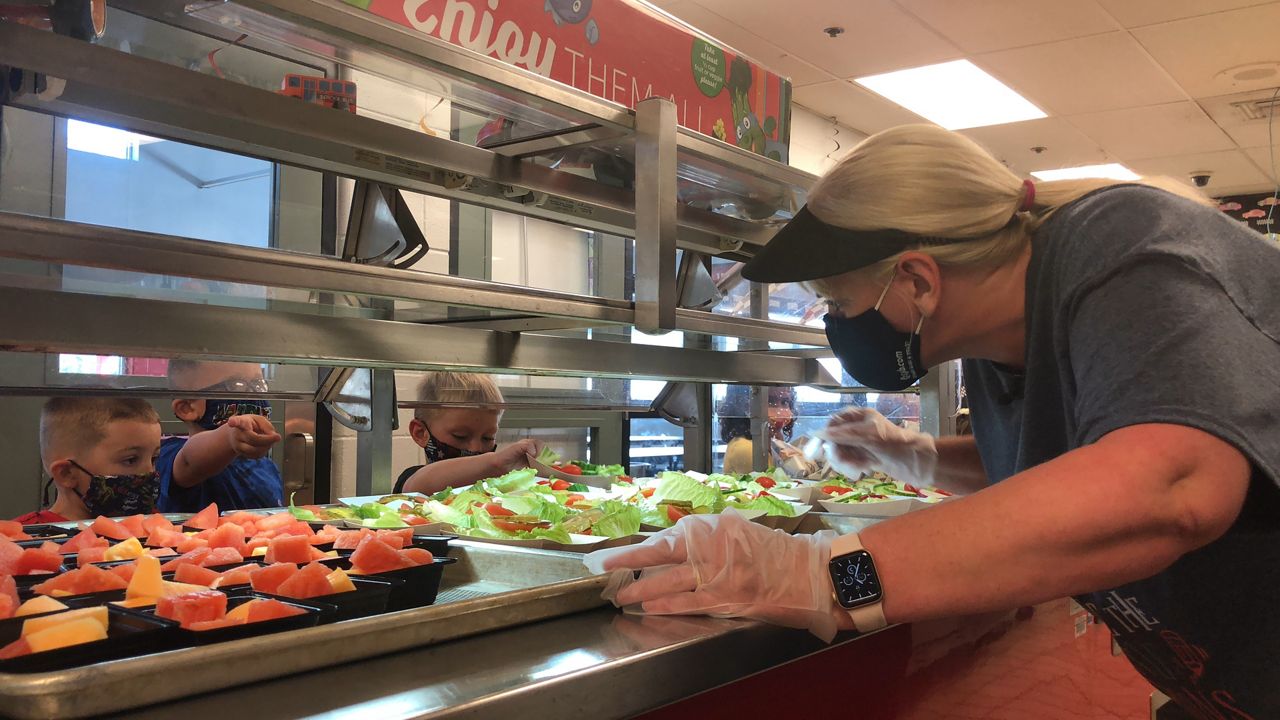GEORGETOWN, Ky. — Disruptions in the supply chain continue to cause shortages not only across the nation, but here in Kentucky as well.
Scott County schools is among many other districts finding alternate solutions to continue by providing nutritious meals to students even through the disruptions.
What You Need To Know
- Schools across Kentucky and the nation are facing issues of supply chain interruptions
- Scott County Schools is taking action and informing parents of any changes
- Director of Nutrition Services says items ranges from shortage on paper products, egg, egg patties to distribution challenges
- An elementary Kitchen Manager and the Director of Nutrition Services finds alternate solutions when an order is not fully complete
Kitchen manager Shannon Karr and her team of chefs at Western Elementary pride themselves on serving up a whole nutritious meal.
"And now we're switching it up. We had watermelon and cantaloupe for the first group, we didn't get enough in like we were supposed to, so now we're going to grapes," Karr said as she removes an empty tray that carried cut watermelon and cantaloupe pieces to a new tray of grapes.
That’s just one example of the current shortage. Schools across Kentucky are facing similar issues.
"Like I said we just adapt and move on with the light for everybody to get the cantaloupe and watermelon but when when we're short on an order, we have to just come up with something else," Karr said.

Finding something else is part of Mitzi Marshall’s responsibility. She’s the Director of Nutrition Services at Scott County Schools.
"Paper products is the biggest issue," Marshall said. "Here today they’re using the real trays. They’re full staff so that's not really a problem. But when we are short-staffed, the first thing we do is cut out our dishwashers and that means cutting out real trays, so paper plates are a huge, huge issue."
Marshall said they’re hard to find and when they do get some paper products, it’s not enough supply to serve a district of 10,000 kids.
"Because you've got everybody across the nation using the same plan so that's where the problem is coming. Everybody's needing the same products," Marshall said.
It’s not just a shortage – the supply chain is also impacting distribution.
"Milk, we were having trouble getting through to distribution. We’re in an area where we kind of fell through the doughnut hole of how far people could get to us," Marshall said.
So Marshall found milk through another vendor and listed more items her team is having a hard time getting their hands on, including water bottles, eggs, egg patties, and more.
"My biggest fear was being out of Bosco sticks. Oh my gosh, how am I gonna tell the people we don't have Bosco space, found a great replacement. The kids were happy and the parents were happy. We were happy," Marshall said.
As a result of the supply chain disruption, on Thursday, the USDA issued a new COVID-19 child nutrition response waiver.
It's to help districts from being financially penalized if shortages prevent them from meeting certain federal regulatory requirements for school meals.
"You just gotta roll with the dice and play with what you have and you move on," Karr said.



